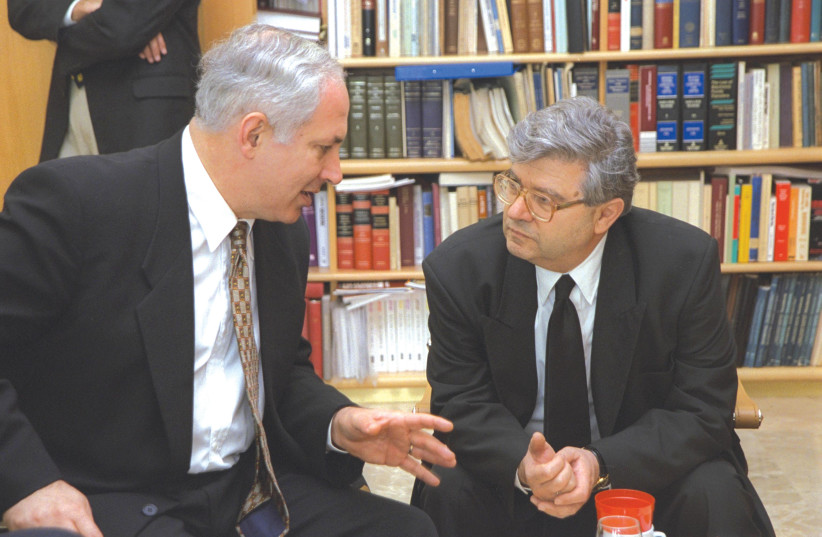"Genocide is more than just a word to me," wrote Aharon Barak, former Israeli High Court President and Israel’s appointee to the International Court of Justice (ICJ) panel, where South Africa has accused Israel of committing genocide as it fights against Hamas in Gaza.
Barak wrote these words within the framework of the ICJ's decision in The Hague, in a document that, beyond being part of a legal ruling, also includes a personal testimony.
"I was a 5-year-old boy when, as part of Operation Barbarossa, the German army occupied my hometown of Kaunas in Lithuania," he wrote, "within a few days, almost 30,000 Jews from Kaunas were taken from their homes and placed in the ghetto. It was as if they were sentenced to death, and we awaited execution," he went on to say. "On October 26, 1941, all the Jews in the ghetto were ordered to gather in the central square, known as 'Democracy Square.' About 9,000 Jews were taken from the square that day, and executed by machine gun fire.
Barak opened his remarks by criticizing South Africa's appeal to the court. He then reminded Israel of its obligations under the Convention on the Prevention of Genocide, alongside acknowledging Israel's right to defend itself, and emphasizing the importance of providing humanitarian aid to the residents of Gaza. He noted that the court emphasized that "all parties in the conflict in the Gaza Strip are subject to international law - which certainly includes Hamas as well."
Barak explained in great detail why he opposes the demand for an immediate cessation of hostilities, and the definition of Israel's actions in Gaza as "genocide," a concept that represents, in his view, "calculated destruction, and human behavior at its worst." According to him, "this is the most serious accusation possible, and it is woven in the experience of my personal life."

Experience as a Holocaust survivor
Barak also told about his personal experiences as a Holocaust survivor. "There was constant hunger in the crowded ghetto," he wrote, "it was a community of people condemned to death, but in their hearts there was a spark of hope, and a desire to preserve their basic human dignity." He recounted one of the particularly painful episodes in the history of the ghetto: "At the beginning of 1944, the Nazis rounded up all the children under the age of 12, loaded them onto trucks and shot them.
"It was clear that I had to leave in order to survive. I was smuggled out of the ghetto in a sack and I was taken to a Lithuanian farmer. A few weeks later, my mother and I were transferred to another farmer. We had to be very secretive, so the farmer built double walls in one of the rooms. We hid in this narrow space until liberation by the Red Army on August 1, 1944. Only 5% of Lithuanian Jews survived."
The former Israeli High Court president then detailed the impact of the Holocaust on his life and work: "I thought a lot about how this experience affected me as a judge. In my opinion, the effect was twofold: First, I am deeply aware of the importance of the existence of the State of Israel. If Israel had existed in 1939, it is possible that the fate of the Jewish people would be different. Secondly, I am a great believer in human dignity. The Nazis and their conspirators wanted to turn us into ashes and dust. They wanted to take away our dignity as human beings, but in this they failed.
"In the most difficult moments in the ghetto, we preserved our humanity. The Nazis succeeded in murdering many of our people, but they failed to take away our humanity."
